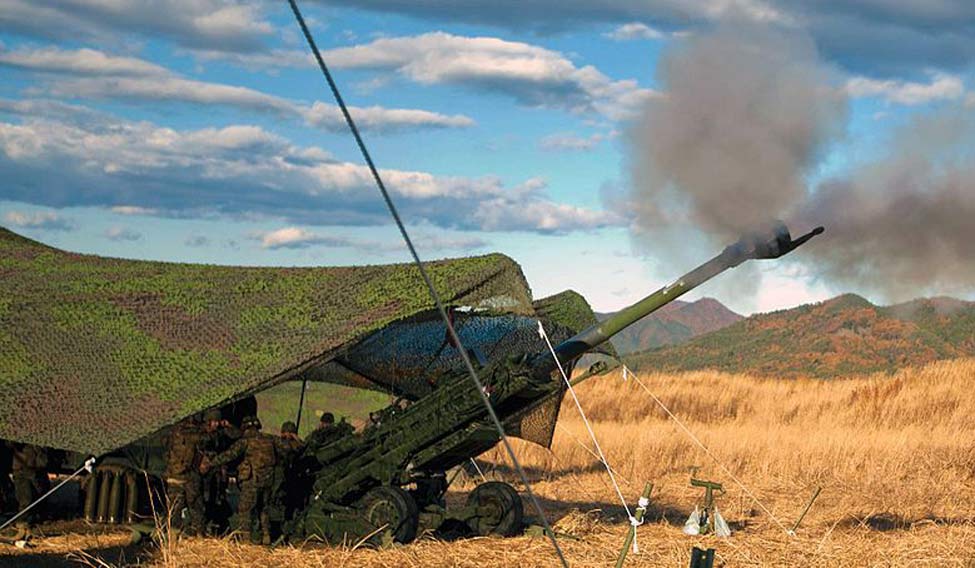The Bofors ghost has finally been exorcised. Not only had it haunted the Indian Army for 30 years, but also jinxed every gun-maker in the world who had come with his ware to India. On Thursday, finally, the Indian Army got two new guns of its own to test in the desert, and call the shots, so to speak.
The new M-777 guns, acquired after a deal initiated by the Manmohan Singh government in 2011 and finalised for $ 737 million by the Narendra Modi regime last year, will be lighter than the Bofors and of even slightly shorter range.
The present plan is to have 145 guns, of which the first 25 guns will be imported, at the rate of two every month from September 2018, and the remaining to be assembled locally by the private company Mahindra Defence. Mahindra has been told to dispatch five guns every month from March 2019. The entire induction will be completed by 2021.
The guns are learnt to be meant for seven regiments that will be part of the new mountain strike corps that is being raised on the China front in the eastern sector. Made of titanium, these guns are billed as the world's lightest 155 mm guns (weighing less than 10,000 pounds), and can be carried over the mountains, slung from helicopters. The guns have a range of 30 km—slightly less than the Bofors 155mm, but one doesn't need long range in the mountains. Designed in a modular fashion, the guns can also be shoved up narrow mountain roads, dissembled and reassembled quickly. US, Canadian and Australian armies have the guns in their armouries.
The M-777 will be the first of the artillery guns. There is also a parallel contract to acquire, over the next three and half years, 100 self-propelled guns, to be called K-9 Vajra-T, though a collaborative deal between L&T and the South Korean firm Hanwha Techwin. These will also be 155mm calibre, but will be self-propelled and tracked.
Since the Bofos buy of the 1980s that spiralled into a major political scandal with charges of kickbacks flung against the then Rajiv Gandhi regime, India hadn't got a single artillery gun. Since then, firms came to be probed at the very scent of a scandal and it had come to such a stage that almost every major gun-maker in the world, who made an offer to India, had come to be blacklisted. Major gun-makers such as Denel of South Africa and Singapore Technologies, had suffered the odium of blacklisting.





